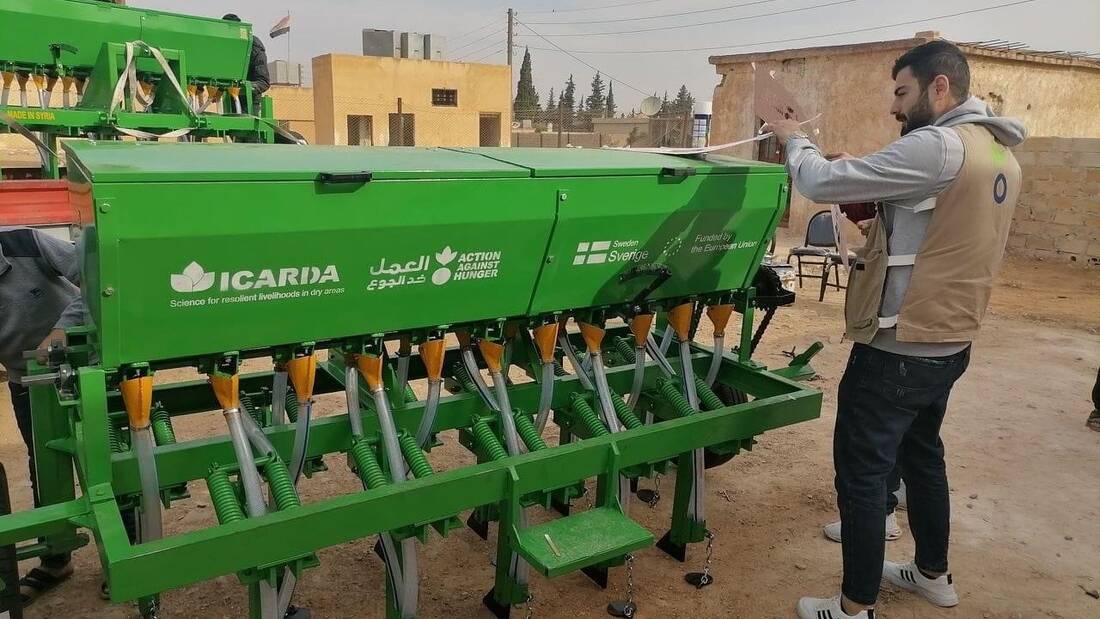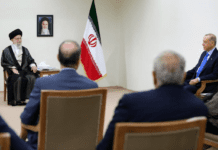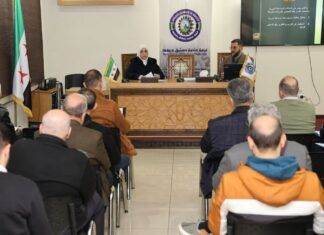
The Assad regime is seeking to restore the International Center for Agricultural Research in the Dry Areas (ICARDA) headquarters to its former location in Aleppo, northern Syria, after years of inactivity due to the ongoing Syrian conflict. The center, an international agricultural research hub, was relocated following battles around Aleppo that began during the revolution in 2011.
On Saturday, September 7, Syrian Foreign Minister Faisal Mekdad met with ICARDA Director-General Ali Abu Sabaa in Cairo, Egypt, to discuss the return of the center to Aleppo. Mekdad, citing the regime’s desire for the center’s resumption, pledged that the Assad regime would offer “all facilities to resume the center’s work in Syria,” according to the regime’s state news agency, SANA.
While the regime expressed enthusiasm about the center’s revival, the meeting did not confirm whether ICARDA would return to its original headquarters in the Tal Hadya area of Aleppo’s countryside or if a new site would be allocated. The Tal Hadya site has been under regime control since 2019, but it remains near volatile conflict zones involving forces from Hayat Tahrir al-Sham (HTS) and revolutionary-held regions in Idlib and the Aleppo countryside.
Founded in 1975, ICARDA has conducted research to provide agricultural solutions for communities in dry regions, improve crop resilience, and promote sustainable farming practices. Before the Syrian revolution, ICARDA’s Tal Hadya facility was a vital research center that helped develop key crops like wheat, barley, chickpeas, and lentils. One of its most notable achievements was the introduction of new drought-resistant wheat varieties, such as “Sham 12,” which remains crucial for agriculture in dry regions.
The center’s operations in Syria ceased when fighting escalated near Aleppo in 2011. Equipment, personnel, and resources were withdrawn, and much of the center’s infrastructure was damaged during military operations. Despite these setbacks, ICARDA managed to preserve critical agricultural data by relocating its genetic resource collections to international gene banks, safeguarding decades of research.
Despite the regime’s calls for ICARDA’s return, concerns linger about the Assad regime’s motives. The Assad regime has a documented history of embezzling funds and misusing resources from international projects and humanitarian aid programs, especially those run by United Nations-affiliated organizations. There are fears that the return of ICARDA could expose the center to the same risks, as the Assad regime has a pattern of siphoning funds meant for development to its war.
The regime’s control over international aid and development projects has led to the diversion of resources for military and political gain. Over the years, various UN agencies have reported misappropriated funds, mismanagement, and interference from government officials in Syria. This pattern raises concerns about the future of ICARDA’s research and whether the center can operate independently without being exploited for the regime’s benefit.
While both sides seem eager to restore ICARDA’s operations in Syria, no specific timeline or logistics have been announced. The center’s possible return could signify a step forward in revitalizing Syria’s agricultural sector, which has been ravaged by war, in part due to policies implemented by Assad and his allies. However, ICARDA’s ability to function freely and effectively remains uncertain, given the Assad regime’s history of corrupt practices.








